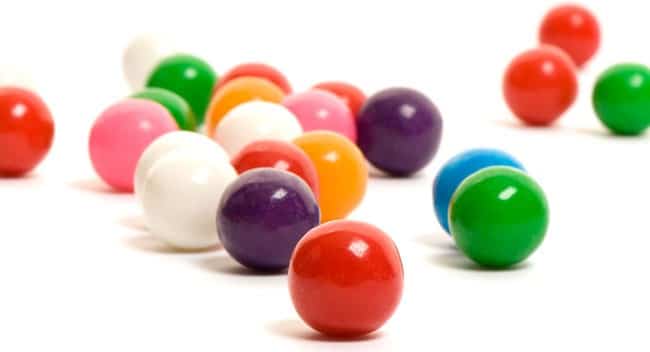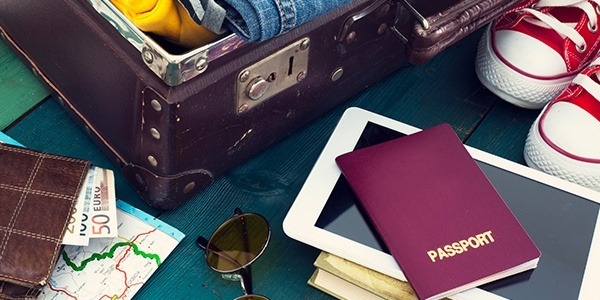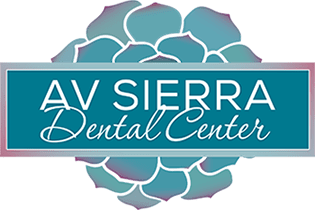Four Foods That Can Damage Your Teeth

Last month, we looked at foods and drinks that can stain your teeth, but whiteness isn’t the only measure of healthy teeth. There are lots of foods that can chip your teeth or damage dental work in your mouth when you eat them. What are some of these problem foods? Your [LOCATION] dentist can warn you about some of the biggest culprits when it comes to chipped teeth, loose fillings, and broken crowns. Ice On a hot summer day, it’s great to fill a tall glass with ice and pour in some soda, lemonade, or tea to help cool down. You’re right if you assume that sugary drinks are bad for your teeth (they are!), but they’re bad in an over-the-long-term kind of way. In fact, lemonade and soda are also quite acidic, which isn’t good for your tooth enamel, either. However, it’s the ice that can actually chip your teeth if you chew it. Other hard foods can damage your teeth, too, so be careful when you’re eating things like baguettes, hard pretzels, and biscotti. Popcorn Lots of people enjoy buttered popcorn while sitting in a cool, air-conditioned movie theater, but unpopped kernels can definitely ruin the fun. They’re hard enough to chip a tooth if you crunch down on one of them by accident or on purpose. However, popcorn actually poses a double threat. The thin shell that covers the kernel can actually get stuck between your teeth or between your tooth and gum, giving bacteria a source of food and promoting tooth decay. Fruits with pits What do olives, cherries, dates, and peaches all have in common? They all have pits, of course, and those pits can damage teeth. If you accidentally bite into a pit, you can definitely crack or loosen a crown—or damage regular tooth enamel. Candy Pretty much every type of candy can damage your teeth. Hard candies can chip teeth if you bite on them or chew them up; if you suck on them and let them dissolve slowly, you’re basically giving your teeth (and the bacteria in your mouth) a sugar bath. Chewy candies, like caramels or taffy, can stick to your teeth, increasing the risk of cavities, or stick to fillings and crowns, loosening them. But sour candies are probably the most damaging of all because they combine three dangers to your teeth all in one. They’re loaded with sugar and they stick to your teeth, but the sour flavor actually comes from acids, which eat away at tooth enamel. You’re probably noticing a theme by now. Hard foods can damage your teeth. We’re not trying to you away from enjoying the sorts of treats you love. However, if you’re eating something that could chip your teeth, pay attention while you’re eating it. If you’re eating something that could damage your teeth in another way, remember to drink some water to rinse out sugars and acids. And always brush your teeth and floss after you’ve eaten any of the foods on this list. If you’ve damaged a tooth or lost a filling because of something you ate, give your Palmdale dentist a call at 661.202.3542 to make an emergency appointment. Come on in, and we can get your damaged tooth fixed right away!
Dental Travel Tips

Summer’s approaching fast, and with it comes road trips, family vacations, and travel plans. We’re all for travel and vacations, but just because you’re going on vacation doesn’t mean you can take a break from oral hygiene. We’re not saying you have to pack an electric toothbrush or a Waterpik® if you’re going camping for the weekend, but you should make an appropriate plan to continue caring for your teeth and gums… or else you could end up with an unpleasant souvenir from your trip: a cavity. Make it easy for yourself with travel supplies. Packing for a trip, whether a road trip or an overseas flight, is always a pain. You never have enough room for everything you want to bring, or you forget something you definitely need (like a toothbrush). Prepare ahead by having a small case or bag with all the travel necessities—toothbrush, toothpaste, floss or picks, and mouth rinse, for starters. Travel sizes aren’t the most economical way to purchase supplies, but they are convenient and ensure you can breeze through security checks at the airport. [spacer size=”20″] Ditch the toothbrush case. Sure, it might not feel good to think about your toothbrush jostling up against shampoo, soap, deodorant, and all the other items you’ve got in your toiletries bag… but it’s not as bad as sealing a wet toothbrush inside a plastic case that doubles as a bacteria breeding ground. You can always wash your toothbrush with hot water when you get where you’re going. [spacer size=”20″] Carry on your supplies. A quick brush, floss, and rinse can do wonders to help you feel refreshed on a long flight or when you get to the airport—and going carry-on will save you headaches if your luggage is delayed. But don’t obsess about it. You’ll be able to get new replacements at a drugstore almost anywhere you go. [spacer size=”20″] Stick to your routine. When traveling, it’s all too easy to get caught up in sightseeing, hiking, and dining out. In fact, that may be the entire point of some vacations. But oral hygiene is one of those things where the routine matters. Remember to brush at night before bed, in the morning after waking up, and to floss at least once a day. [spacer size=”20″] If in doubt, use bottled water. In foreign countries, especially ones that are off the beaten path, play it safe by using bottled water for your oral hygiene routine. As a rule of thumb, if you’re going to avoid drinking tap water, then avoid using it for brushing. Thankfully, in these places, most hotels will provide a complimentary bottle or two every day. [spacer size=”20″] Stick with healthy snacks. When you’re on the go, whether in the car or out sightseeing, there’s a temptation to pick up junky snacks for a quick energy boost. Avoid doing so if you can. Not only is the energy from a candy bar or bottle of soda short-lived, sugary snacks and drinks give bacteria plenty of fuel to cause tooth decay. If you do give into temptation, you’ve packed your toothbrush in carry-on for a reason. Use it. And if you like to chew gum on a plane, stick with sugar-free. [spacer size=”20″] Finally, if you’re planning a long trip, consider a check-up before you go. When your departure date gets close, it’s easy to put off routine tasks until after your vacation. If one of those tasks is your dental checkup, reconsider. If you’ve got a nagging concern, like an achy tooth, get it taken care of before your vacation. The last thing anyone wants is a full-blown toothache ruining your vacation! [spacer size=”20″] We hope you’re all set to enjoy a great summer vacation, but don’t forget to take care of your teeth when you’re traveling. If you need to set an appointment for a check-up before you go, or if your schedule is just a little bit simpler during the summer months, call or visit our website to make your next appointment today.
Avoid Bad Breath for Good

In almost every social situation, there is one thing most people are concerned about: halitosis, better known as bad breath. It can be embarrassing for you, uncomfortable to other people, and potentially a deal breaker for a job interview or date. To make it even more difficult to manage, our bodies have a great way of blocking out constant smells, making it very hard to determine if we have bad breath before it’s too late. How do I know if I have bad breath? You can easily test how your breath smells to others with this simple test. Lick part of your arm and smell it after about 10 seconds. Now, licking your arm in public may seem weird (and have its own social consequences), this test can give you a good indication of how your breath smells. However, it may not always be accurate. The best thing you can do is be aware of what causes bad breath and prevent it before it happens to you. How do I Make my Breath Smell Better? Hygiene The most common cause of bad breath is straightforward; you have a dirty mouth. Bacteria live in your mouth, and when you eat, they eat. These odors are made worse by your tongue, which acts like a fleshy dish sponge, absorbing food particles and bacterial byproducts. If you think this is your issue–and it is best place to start–the best remedy to avoid bad breath is to brush and floss daily. This will help eliminate leftovers for the bacteria to eat. To further eliminate any odor, open your mouth and look at the back of your tongue. If looks like it’s covered in a white or brown substance, this could be the main source of your bad breath. Brush as far back on your tongue as you can with your toothbrush, or use a tongue scraper, which will do the job more efficiently. Dry Mouth Saliva keeps the mouth clean by washing away bacteria, plaque, and keeping the acidic levels in your mouth at the proper level. If your mouth is chronically dry, bacteria can take over, leading to bad breath. If you are experiencing dry mouth, be sure you are drinking plenty of water. Additionally, check to see if any medication you are taking causes dry mouth. If so, talk to your doctor about solutions or a potential change in medication, that can prevent your dry mouth and bad mouth smell. Specific Types of Food There are certain types of food that cause bad breath. No matter what you do, you won’t be able to avoid the unwelcome baggage they carry. Coffee, tuna, onion, and garlic have a tendency to stick around even after you brush your teeth. For example, as garlic is digested, sulfur compounds permeate your lungs and skin, meaning there isn’t much you can do to hide the smell. For the sake of everyone around you, don’t go to hot yoga after eating a clove of garlic. Disease Bad breath can also be a sign of something more significant. If you have ruled out the issues above, bad breath (along with other symptoms) can be related to diabetes, gum disease, kidney disease, and many more chronic conditions. If you think your bad breath is connected to a more serious ailment, contact your family doctor to learn more. How Do You Get Rid of Bad Breath That Won’t Go Away? If you can’t improve the smell of your breath on your own you may need to talk to your dentist. Dentists are able to look at your mouth and see what the potential cause of your bad breath is. They will have the expertise to notice if it’s plaque, debris on your tongue, or periodontal disease. They can also prescribe you medicine for halitosis such as antimicrobial toothpaste and mouthwash to take care of the issue. The dentist may determine that the issue may not be located in your mouth, and would then refer you to your family doctor. Come visit Drs. Oh and Couto at AV Sierra Dental Center if you have any more questions or concerns about halitosis.
Why do I Need Professional Teeth Cleanings?

Why do I Need Professional Teeth Cleanings? Let’s look at five reasons why you should get your teeth regularly cleaned. 1. We check for oral cancer With cancer, the sooner it’s detected the better chance you have of successfully getting rid of it. Oral cancer is no different. During each teeth cleaning, we check for any signs of oral cancer. 2. Cleanings help prevent cavities Brushing and flossing every day will do wonders in maintaining a healthy mouth. But, sometimes you may forget to floss, or maybe you had a few too many sodas and candy bars. Our dental hygienists will ensure that your mouth is free of plaque, and can also give you tips for your at-home cleaning if they see something you may not be doing. 3. Cleanings help prevent gum disease Gum disease can easily creep up on anyone. It is often painless until it becomes a bigger problem. When diagnosed with gingivitis, it can still be reversed with proper gum maintenance. Once gingivitis progresses to periodontal disease, it requires ongoing professional care to prevent further damage to your mouth. Professional cleanings at twice a year drastically reduce the risk of gum disease ever starting. 4. Having a healthy mouth contributes to a healthy life Poor oral health has been connected with diagnoses for diabetes, heart disease and pregnancy complications. Keeping your gums and teeth healthy will help prevent the occurrence of these diseases. 5. Regular cleanings are cheaper than taking care of oral problems Receiving two professional cleanings a year may be an expense you don’t like to see. However, teeth cleanings are much cheaper than other procedures, such as root canals, scaling and root planing, and dental implants. There is nothing better than a freshly cleaned mouth! Our dental hygienists will make sure you have pain free experience, and you can leave knowing you’ve taken a giant leap forward in maintaining a healthy smile. If you have more questions about our professional teeth cleanings, or if you’d like to schedule an appointment, please call your Palmdale dentist at 661.202.3542.
How to Get Rid of Canker Sores

Imagine you are eating a big, juicy steak cooked to perfection. You cut out a chunk of steak place it in your mouth. The first bite is delicious, and the second bite is even better. But then, in your fervor for chewing, you forget where the steak ends and where your cheek begins. Before you know it–chomp!–a bite that was intended for that tasty piece of steak caught your cheek. It’s painful and irritating, but you can get past the pain. The next day, your wound is healing well, but unfortunately during lunch you bite down on it again. Now it’s official: you have a full blown canker sore. While not all canker sores are self-inflicted, it’s good to know what causes canker sores and some remedies you can implement to promote healing while reducing pain. For the most part, canker sores are more of a nuisance than a health issue. They can appear on the inside of your lips, cheeks and on your tongue. They can either be caused by trauma (like biting on the inside of your cheek or braces irritating your mouth) or other factors like stress and the types of food you eat. Avoid agitating your canker sore Try not to hit it with your toothbrush. Steer clear of foods that will annoy your canker sore, including crunchy, dry, or acidic foods–especially citrus! If you have braces, apply wax where the canker sore comes in contact with them. If your braces or dentures continue to cause discomfort and canker sores, your dentist may be able to make the proper adjustments to fix the issue. Since most canker sores go away on their own, the best thing you can do is manage the pain Gargle with salt water. Mix about ¼ to ½ teaspoons of salt with eight ounces of warm water. Put about two to three ounces of water into your mouth at a time and swish it around for 20-30 seconds, then spit it out. Continue to do this until all of the water is gone. Consider using a local numbing agent. Products like Oragel can be applied to the canker sore and numb it for temporary relief. These types of products contain benzocaine, so please read all cautions before applying. Take over-the-counter pain relief medication, like ibuprofen. If your canker sore doesn’t heal within a few weeks, it’s time to see a dentist. If your canker sore makes it too painful to eat or drink, consider seeing your dentist before the three week mark. Make an appointment with your local Palmdale dentist if you think you may need additional canker sore treatment.
